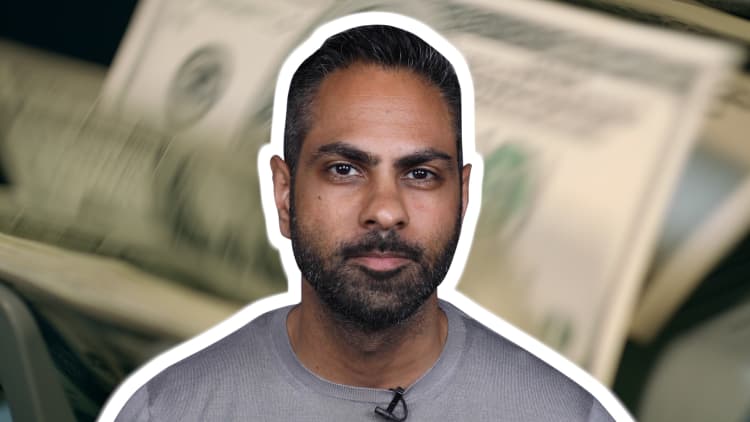Ask any expert investor, and they'll tell you that trying to time the market is a fool's errand. For long term investments, like retirement savings, it's time in the market that matters most, not the perfect entry point.
Which is why it might make sense to try to max out retirement contributions as early in the year is possible, assuming you have the means to do so. In 2019, the 401(k) contribution limit is $19,000 and the IRA limit is $6,000 for those under 50.
The idea is that more time in the market can potentially lead to higher returns over time. If the market goes up throughout the year, as it has historically done, contributing in January as opposed to November or December can give you almost a year's worth of growth. This is especially true for a Roth IRA, an investment account that is funded with money that has already been taxed, because its main benefit to investors is tax-free growth.
"If you can make that contribution earlier in the year, why not? You're getting the growth in a tax-free shelter," Chantel Bonneau, wealth management advisor at Northwestern Mutual, tells CNBC Make It about Roth IRAs. "It could participate in the market longer."
That extra time compounds the Roth's tax benefit, whereas you are getting the same tax benefit with a traditional IRA no matter when you contribute.
"From our research, we believe that an investor that maxes out their IRA at the beginning of each year would have an additional $8,800 after 10 years compared to those who wait to make their contributions until later in the year," Andrew Westlin, a certified financial planner at Betterment, tells CNBC Make It, citing this blog post. "That's why we always say time in the market is more important than timing the market."
Maxing out any retirement account is a good problem to have. According to data provided by Fidelity, just 9% of 401(k) participants max out their contributions, over 80% of whom do so in the second half of the year.
The downsides of maxing out early
Katie Taylor, vice president of thought leadership at Fidelity Investments, tells CNBC Make It that there are a few downsides to the front-loading strategy to consider, the most important being a 401(k) match. If your employer matches your contribution each pay period, then you might forego some of that free money by maxing out early.
But if the company offers what's known as a true up, then you'd still get the full match. A true up "allows employees to receive employer matches that they would have otherwise missed out on because of 401(k) front-loading or because they spread their 401(k) contributions out unevenly throughout the year," according to the Financial Industry Regulatory Authority, or FINRA, which estimates that around 45% of companies offer them.
If your employer doesn't offer the option to true up, Taylor suggests you think more strategically about spreading your contribution throughout the year. "You want to take advantage of as much of that free money as possible."
Missing those employer funds can add up over the long-term when you consider the compounding returns you'd lose out on.
Investing consistently may be your best option
And because no one really knows what the market will do, Taylor says dollar-cost averaging, or investing the same amount of money on a consistent basis (i.e. each pay period) throughout the year, is likely a better bet for most investors than front-loading contributions, no matter the account. If you contribute everything on a single day, you are risking 12 months of potentially better market activity.
Saving as much as you can is always smart for anyone.Katie TaylorVice President of Thought Leadership, Fidelity
"Don't try to time the market, especially for a longer term investment like a 401(k)," she says. "When you're constantly contributing and buying in at the different price points, that's where the dollar-cost averaging comes in."
If your employer will give you the full match, and you are planning to switch to a job with a less generous match, then it might make sense to try to max out at the beginning of the year. Conversely, if you might change jobs to a company with a higher match, you'd lose out on those dollars by maxing out early.
Then there's the possibility that you might need those dollars for an emergency down the line, or for other goals you have. Tying them up in a retirement account makes them harder to access without incurring penalties and fees.
Bonneau adds that while it's her preference for clients to spread out contributions, every investor has to do what works for him or her. Getting a handle on your individual financial behavior is often more important than trying to optimize every single account.
Overall, though, saving more is never a bad idea, no matter when you do it.
"Not everybody needs to hit that max, depending on your income and how much you need to save for the future," says Taylor. "But saving as much as you can is always smart for anyone."
Don't miss: How your money might be affected if the Fed cuts interest rates
Like this story? Subscribe to CNBC Make It on YouTube!



